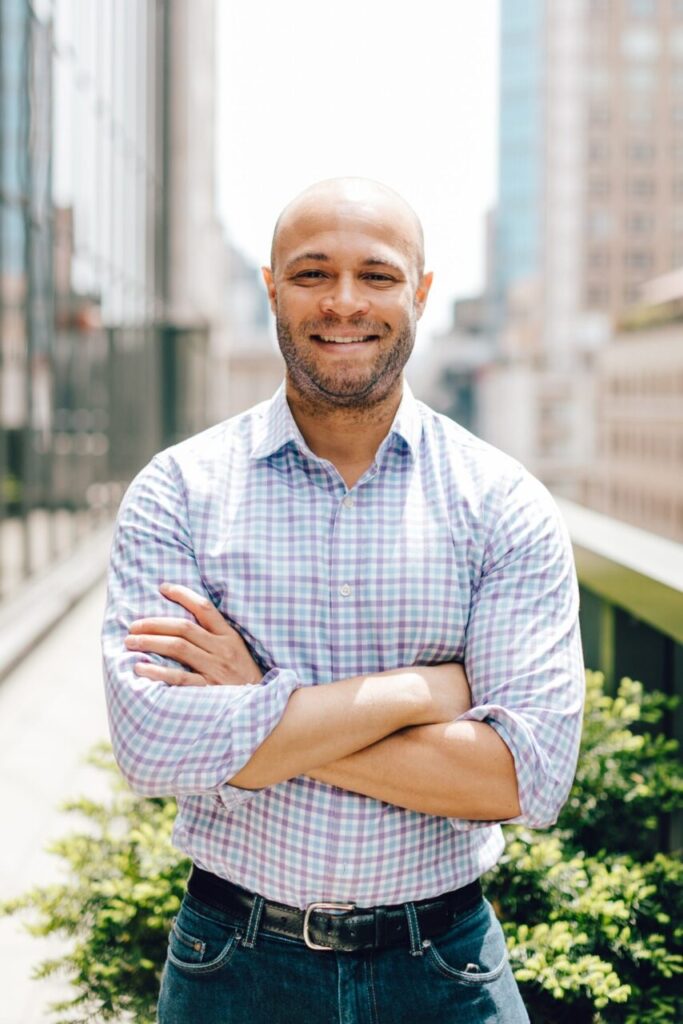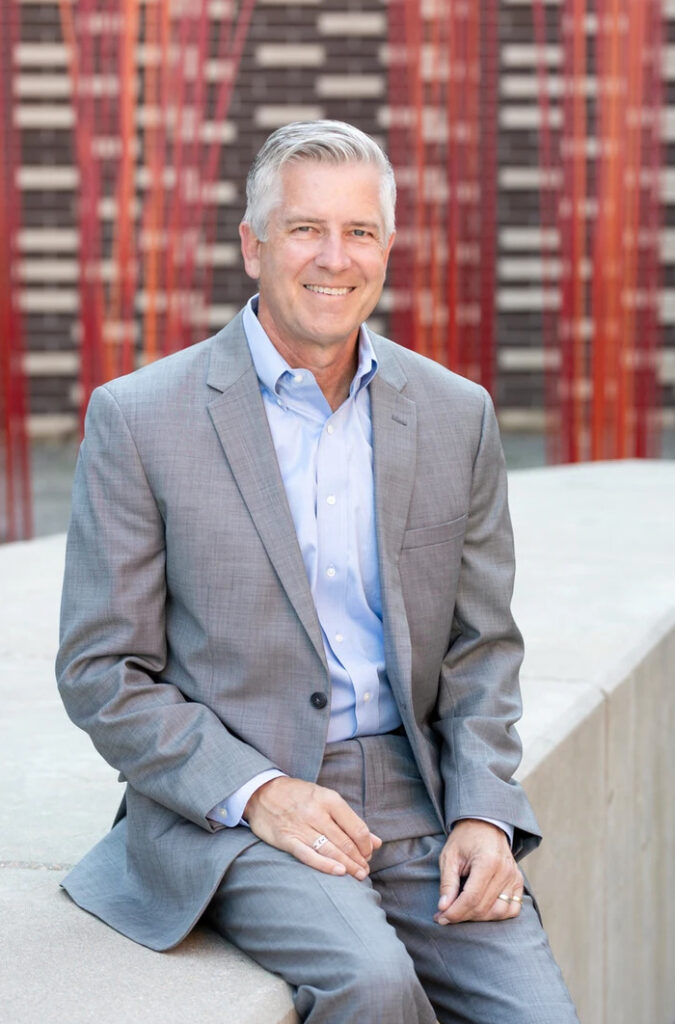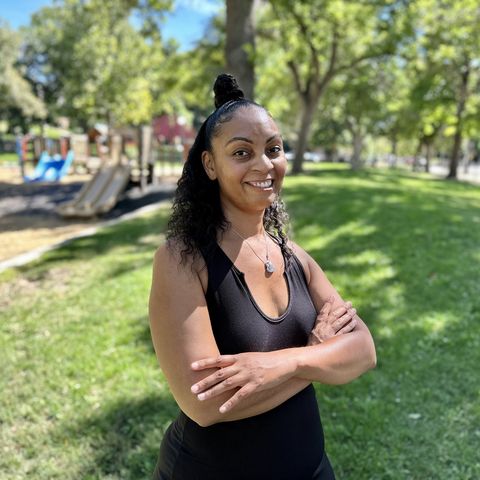By Kathryn White
Denver voters will decide Nov. 7 which of three remaining candidates will take the at-large school board seat currently held by Auon’tai Anderson.
In June, Anderson announced he would not seek re-election to the school board and would instead run to represent House District 8 (HD8) in the Colorado House of Representatives. Leslie Herod, who currently represents HD8, is term limited.
Directors on the Denver Public Schools (DPS) Board of Education serve four-year terms and are restricted by Colorado statute to a maximum of two terms.
The DPS Board consists of seven directors. Five represent specific areas of the city. Two serve in the at-large capacity, representing residents across the district. Three board seats are open for election this Nov. 7. The other four will be decided again in 2025.
Three candidates remain in the race for the at-large seat vacated by Anderson.
Kwame Spearman

Kwame Spearman lives in the Whittier neighborhood and attended Montclair Elementary School, Smiley Middle School and East High School. He left Denver for college and a career in business, moving back in 2021 to join investors buying the Tattered Cover bookstore. He remains co-owner.
Spearman said he is the right candidate for the board at this time because of his experience, vision and leadership.
His mother worked for 38 years in DPS schools, which Spearman said surrounded him with the concerns of educators over the course of his upbringing.
“We asked ourselves the questions we are asking ourselves today,” said Spearman, “which are, How do we improve student outcomes? How do we support our teachers? And how do we have great schools in every neighborhood?”
Spearman described what he called a school district that’s working, and a school district that’s not. His DPS experience worked for him.
“But as a Black male, I also see the other side where we are failing our Latino and Black students,” he said.
Spearman said his aspirations for the district include schools where 100% of students feel safe, 100% of third-graders are reading at grade level and where 100% of students graduate from high school.
Spearman pointed to his leadership in business as “an opportunity to bring everyone together. I fundamentally believe that if you’re serving on the board you want what’s best for students, you want what’s best for teachers. We can use that North Star to come together to bring decorum back, to focus the conversation on students and teachers.”
When asked about keeping abreast of stakeholder concerns, Spearman cited his time volunteering on three educational boards: the Denver Public Schools Foundation, the East Angels (East H.S) Friends and Alumni Foundation and the Colorado Education Initiative. In these capacities, he said he spends time in schools and participates in conversations about what will make schools work better for students.
“We need to do more listening than talking. I’ve traveled to every neighborhood in this wonderful city, either via the mayoral campaign or listening to issues for this race,” he said. “I think representation matters. You are in a majority minority district and so I think my ability to go into our communities, that are the majority of our school district, and really listen and connect and inspire amongst those constituents. That’s how I’ll get my news.”
In dealing with people with whom he disagrees, Spearman said it is important “to have a North Star” that everyone is aligned toward.
“The second thing you’ve got to do is find common ground,” he added. “We spent so much time talking about the areas in which we disagree and so little time talking about the areas where we agree.
“One of the huge failures, I think, is this SRO [school resource officer] debate, where we have somehow manufactured a situation in which it feels like we are so polarized on this,” he continued. “We are not. Every Denverite wants our schools to be safe, period, full stop … Every single person wants to decrease the Black and Latino school-to-prison pipeline.”
Spearman would like to see declining enrollment in the district as an opportunity. He cited 8% of eligible students who leave the district for schooling.
He said he’d like to see greater choice in neighborhood schools run by the district to attract students back to DPS.
For schools seeing declining enrollment, he said, “We’ve got to figure out what is going on at those schools, we need to go into the community and see what’s happening. And then I think we need to make changes to those schools. Once again, I think those need to be neighborhood schools. I think they need to be run under DPS.”
Spearman would also look to DPS schools currently attracting students from outside the district for ideas to do this better across the entire system.
“The other thing we’ve got to figure out is when we’ve got these really small schools, what’s the best use of their space?” he added. “I don’t think that we have to close a school just because it’s small.
Spearman said one of the reasons he’s running “is because we haven’t faced declining enrollment like we’re seeing in the district for a really long time. We’re going to need innovative ideas. We’re going to need new leadership that can come to the table and think through creative strategies.”
When asked about bilingual education, Spearman said we need to change the metrics used for viewing the success of bilingual students.
“What I mean by that is testing,” he explained. “Schools that have high percentages of bilingual students are, quote unquote, testing at worse rates than students in schools that don’t. It creates a perception that these schools are not doing their job, which creates flight from their school, which creates declining enrollment.”
Spearman would also advocate for more resources and support for schools serving high numbers of English language learners.
“I like the changes that the district has made over the past 15 to 20 years, to lead with Spanish and then to introduce English into the conversation. I think we need to continue to do that and continue to innovate.”
Spearman has been endorsed by the Denver Classroom Teachers Association (DCTA), the local chapter of the AFL-CIO, Sheet Metal Workers Local Union No. 9, the Communication Workers of America (which represents, among others, custodial workers in DPS) and others listed at www.kwamefordenver.com.
“We are proud to endorse a leader like Kwame Spearman in his election for the DPS Board At-Large,” said Rob Gould, special education teacher and president of the Denver Classroom Teachers Association. “Kwame comes from a three-generation family of educators and deeply understands that when educators have the vital support that they need, students are able to reach their full potential.”
John Youngquist

John Youngquist lives in southeast Denver and graduated from Thomas Jefferson High School.
His experience with DPS includes teaching at a number of schools and serving as a principal at Smedley and Newlon elementary schools, and at East High School.
While at Newlon, in 2000, Youngquist was awarded Colorado Principal of the Year by the Colorado Association of School Executives (CASE).
Youngquist served as DPS area superintendent for northwest, southwest and northeast Denver schools.
Youngquist said he has brought the values of integrity, equity and synergy to the roles he has had in education.
“For me, integrity is simply that I do what I say and I take responsibility and am accountable for my actions,” he said. “And that will include the actions of our board.
“The simple frame that I use for equity is that every person gets what they need, when they need it,” Youngquist added. “In my experience in schools and districts, when we’re not trying to give people what they want, but instead giving them what they need, when they need it to be successful academically. And that includes principals, teachers and certainly students.”
Youngquist said that what sets him apart as a candidate is his experience with elementary schools, middle schools and high schools, as well as experience at the district level with DPS, Cherry Creek, Summit County and Aurora school districts.
For Youngquist, keeping abreast of the concerns of district stakeholders “is all about being present. In listening deeply. As a white man that has worked primarily in communities of color, my understanding is that my job is to be present and to listen deeply and closely to understand the interests and the needs of the students and parents that I’m serving in communities, and the teachers and principals that I’m serving in schools.
“And then responding, always responding to what it is that I’m hearing,” he continued. “And letting people clarify, so that we can move forward together making the right kinds of decisions for our students and teachers and community.
When asked about working relationships with those he disagrees with, Youngquist said that you rarely get to choose who you work with. He said that educators don’t choose who is in their classroom each school year.
“I get the people that are coming to my classroom, and I find the value, and I find the experience, and I find the worth, in each one of those people,” he said. “As chief academic officer, the same. As a board member, the same. My experience has been that when I’ve entered into places, especially those that have experienced conflict in the past, or recently, I need to listen even more deeply, to find the value that is there.”
On declining enrollment, Youngquist wanted to acknowledge the trend of declining birth rates.
“What we need to be able to do is not exacerbate that trend by representing a school district that does not have its act together,” he said.
“We need to be able to represent that we are a community focused on the right efforts. That we’re focused on teaching and learning. That we are investing in our schools in the right way,” he added. “That we are valuing our leaders and our teachers so that they stay here with us. And we are representing we’re a safe community of schools where children are learning.”
Of school closures, Youngquist said the current board and superintendent are challenged, in part, because they address it year by year, with attempts to make decisions in one or two meetings.
“My belief, through experience and in watching other districts and ours work in the past with school closure,” he said, “is that it has to be an ongoing conversation that includes a 12- to 18-month decision making process, when you have transparency into the budget that allows you to understand where are we now and where we are likely to be in the next three to five years.”
He said that deliberations need to engage communities “in conversation about who they are, what they are about. The interests that are present in each of those communities.
“Until the school board demands that the superintendent engage a process like that,” he added, “we will continue to have the difficulty that we’re having with conversations around school closure.”
When asked about bilingual education, Youngquist said he brings experience both as a principal of bilingual schools and the chief academic officer in Aurora Public Schools, where the needs of English language learners were a priority.
He said he would focus on having the right teachers in place “to teach our children in the native language, with the system that we have. And to teach them the English language, distinctly, in the system that we have. And to embed language supports throughout the day.
“We need to elevate the priority of interest for multi-language learners in our district, supporting their families as the primary supporters of their students as multi language learners,” he said.
Youngquist has been endorsed by the Denver Metro Association of Realtors, Denver Families Action, a public schools advocacy organization backed in part by charter school networks, and others listed at www.youngquist4dps.com.
Of the Denver Families Action endorsement, Youngquist said, “I think about it as a spectrum of union to charter, harder core reform space, they’re in the middle toward innovation and charter and reform, and support neighborhood schools. Where the union is more in the middle — there are some union members that are innovation status school teachers — to the district-run school space.
“My interest,” Youngquist said, “is having the most broad range of support so that we can engage that conversation fully together over the course of our work as a school board.”
Brittni Johnson

The Denver North Star reached out to Brittni Johnson several times by phone and email for an interview, but we did not hear back. Information about Johnson’s candidacy can be found at www.brittni4dps.com.
Johnson, a DPS parent and doctoral student, has been endorsed, her website states, by DPS at-large board member Scott Esserman, at-large City Councilwoman Sarah Parady and former city councilwoman for District 9, Candi CdeBaca.
____
The Denver North Star’s previous coverage included candidates Paul Ballenger, Ulcca Hansen and Sean Gallegos.
Ballenger announced in a Sept. 29 Chalkbeat interview that he had exited the race and was endorsing Youngquist. He said, “I’m proud we made sure safety was a top priority this election.”
Hansen dropped out of the race in late August citing concerns about the impact of “soft side spending,” also known as outside spending or independent spending.

Be the first to comment